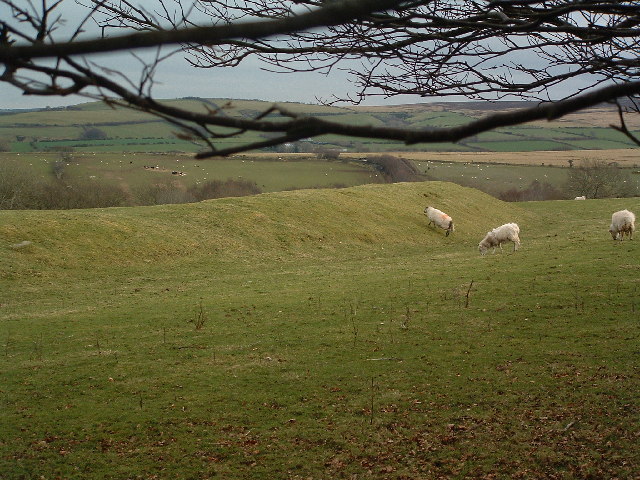Roborough Castle on:
[Wikipedia]
[Google]
[Amazon]
 Roborough Castle is an
Roborough Castle is an
 Roborough Castle is an
Roborough Castle is an Iron Age
The Iron Age is the final epoch of the three-age division of the prehistory and protohistory of humanity. It was preceded by the Stone Age (Paleolithic, Mesolithic, Neolithic) and the Bronze Age (Chalcolithic). The concept has been mostly appl ...
enclosure or hill fort
A hillfort is a type of earthwork used as a fortified refuge or defended settlement, located to exploit a rise in elevation for defensive advantage. They are typically European and of the Bronze Age or Iron Age. Some were used in the post-Roma ...
situated close to Lynton
Lynton is a town on the Exmoor coast in the North Devon district in the county of Devon, England, approximately north-east of Barnstaple and west of Minehead, and close to the confluence of the West Lyn and East Lyn rivers.
Governance
Lynton ...
in Devon
Devon ( , historically known as Devonshire , ) is a ceremonial and non-metropolitan county in South West England. The most populous settlement in Devon is the city of Plymouth, followed by Devon's county town, the city of Exeter. Devon is ...
, England. The fort is situated on the North East edge of a Hillside forming a promontory above a tributary to the East Lyn
The East Lyn is a river which rises high in Exmoor, in the English county of Somerset. It flows through the East Lyn Valley in Devon.
Watercourse
The river is formed as the Upper East Lyn at Malmsmead from two minor tributaries, the Oare ...
River known as Hoaroak Water at approx 320 Metres above Sea Level.
References
Hill forts in Devon Lynton and Lynmouth {{UK-archaeology-stub